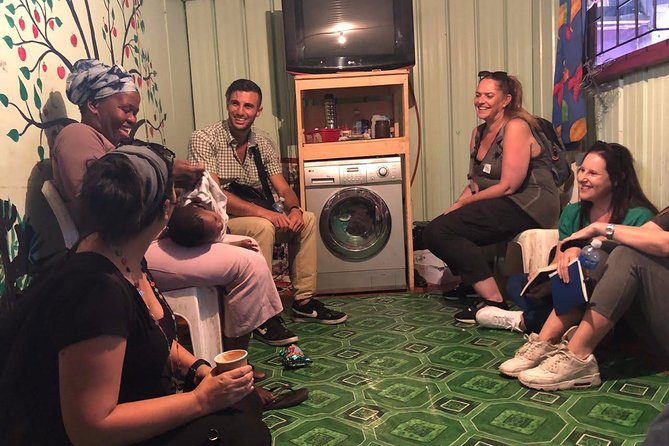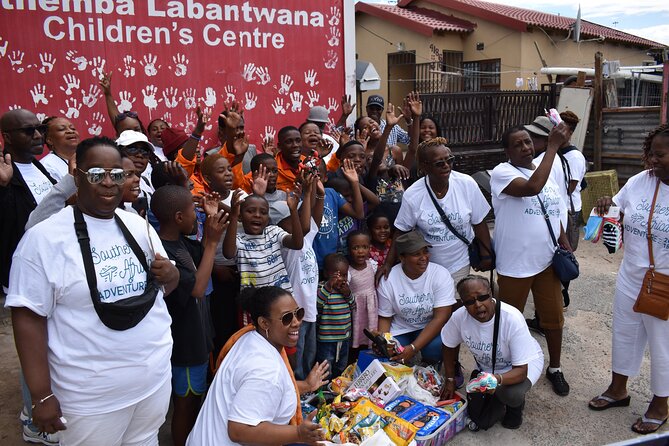Respectful Foster Home Visit
In the realm of supporting foster families, a carefully conducted visit can set the tone for meaningful connections and positive outcomes.
As the door opens to a foster home, it symbolizes a gateway to understanding, empathy, and growth.
The nuances of these visits hold the power to shape the dynamics of relationships and influence the well-being of those involved.
Eager to explore the intricacies of what makes a foster home visit truly respectful? Let’s uncover the layers of compassion and communication that pave the way for fostering hope and healing in the lives of children and families.
Key Points

- Establish clear boundaries with compassion for a supportive visit.
- Provide comfort through gentle gestures during the visit.
- Encourage independence and boost confidence in foster children.
- Offer guidance while respecting their autonomy for a nurturing experience.
Understanding the Foster Home Environment
In delving into the essence of the foster home environment, one encounters a realm where compassion and resilience intertwine to provide a nurturing haven for children in need. Foster care dynamics play a crucial role in shaping the daily experiences of both caregivers and children, fostering a unique bond based on trust and understanding.
Supportive interactions within the foster home setting create a sense of stability and security for the children, offering them a safe space to express themselves and grow. These dynamics are essential in building a sense of belonging and family within the foster home, where children can thrive despite the challenges they’ve faced.
Through consistent and caring interactions, the foster home environment becomes a place of healing and hope for those who call it home.
Building Trust With Foster Children
To establish a strong connection with foster children, caregivers prioritize building trust through consistent and compassionate interactions. Trust-building activities play a crucial role in forming a bond with the child. From engaging in fun games and activities to actively listening to the child’s perspective, caregivers aim to create a safe and supportive environment where the foster child feels valued and understood.
Building rapport takes time and effort, requiring patience and empathy to navigate any challenges that may arise. By demonstrating reliability, respect, and genuine care, caregivers can foster a sense of security and belonging in the child’s life. Ultimately, these efforts contribute to a trusting relationship that forms the foundation for a positive foster care experience.
Respectful Communication With Foster Parents

Establishing open and empathetic channels of communication fosters a supportive partnership between foster parents and caregivers. Active listening and empathy building are crucial components in ensuring effective communication and building trust. By actively listening to foster parents, caregivers can better understand their needs, concerns, and preferences, creating a more respectful and supportive environment. Demonstrating empathy towards foster parents’ unique challenges and experiences can help strengthen the relationship and promote collaboration in providing the best care for the foster children. Through genuine communication and mutual respect, foster parents and caregivers can work together harmoniously towards the common goal of ensuring the well-being and happiness of the children under their care.
| Active Listening | Empathy Building | Effective Communication |
|---|---|---|
| Listen attentively to foster parents’ concerns and perspectives | Show understanding and compassion towards the challenges faced by foster parents | Communicate openly and honestly to foster a supportive partnership |
Importance of Cultural Sensitivity
Understanding and respecting the diverse cultural backgrounds of foster children and their families is fundamental to providing a nurturing and inclusive environment in foster care. Cultural awareness and sensitivity training play a crucial role in ensuring that foster children feel valued and understood in their placements.
Here are three key ways in which cultural sensitivity can be prioritized in foster care:
-
Educate Foster Parents: Provide cultural competency training to foster parents to help them understand and appreciate the cultural heritage of the children in their care.
-
Celebrate Diversity: Encourage foster families to celebrate and embrace the cultural differences of the children, fostering a sense of pride in their heritage.
-
Respect Traditions: Support and respect the traditions and customs of the children’s cultural backgrounds, incorporating them into daily life within the foster home.
Creating a Supportive Foster Home Visit
Creating a warm and welcoming environment during a foster home visit is essential for fostering a sense of security and comfort for the children involved. It starts with establishing boundaries that are clear yet compassionate, ensuring a safe space for the children to express themselves freely.
Providing comfort through gentle gestures, like offering a blanket or a favorite toy, can go a long way in making them feel at ease. Encouraging independence by allowing them to make choices within reason helps build confidence and self-reliance.
Offering guidance when needed shows that support is available while also respecting their autonomy. By balancing these elements, the foster home visit can become a supportive and nurturing experience for the children in need.
Common questions
Can I Bring Gifts or Treats for the Foster Children During My Visit?
When visiting foster children, guests can bring gifts or treats to share joy and connection. Foster parents appreciate these gestures, which can create meaningful moments during the visit. It’s a kind way to show care and support.
How Can I Ensure That My Visit Is Beneficial for Both the Foster Children and the Foster Parents?
To ensure a beneficial visit for both foster children and parents, effective communication strategies and rapport-building are crucial. Setting boundaries while understanding their needs fosters a respectful and supportive environment, promoting a positive experience for all involved.
What Should I Do if a Foster Child Becomes Upset or Uncomfortable During My Visit?
If a foster child becomes upset or uncomfortable during a visit, provide emotional support by actively listening, offering reassurance, and validating their feelings. Use open communication, respect boundaries, and focus on building trust to create a safe and supportive environment.
Is It Appropriate to Ask About the Foster Child’s Background or History During the Visit?
It’s crucial to respect boundaries, privacy, and show sensitivity and empathy when interacting with foster children. While curiosity is natural, it’s best to avoid asking about their background or history during the visit.
How Can I Show Respect for the Cultural Background and Traditions of the Foster Family During My Visit?
Showing cultural sensitivity involves respecting traditions. Communicate respectfully and engage thoughtfully with the foster family’s cultural background. Demonstrating understanding and interest in their heritage can foster a meaningful connection and mutual respect during the visit.
Last Words
To sum it up, fostering a respectful and supportive environment during foster home visits is crucial for building trust and understanding between all parties involved.
By practicing empathy, open communication, and cultural sensitivity, foster parents, children, and social workers can create a safe and welcoming space where positive connections can flourish.
It’s through these meaningful interactions that hope is nurtured, and the foundation for a brighter future for foster children is laid.
Let’s continue to foster respect and compassion in every visit.